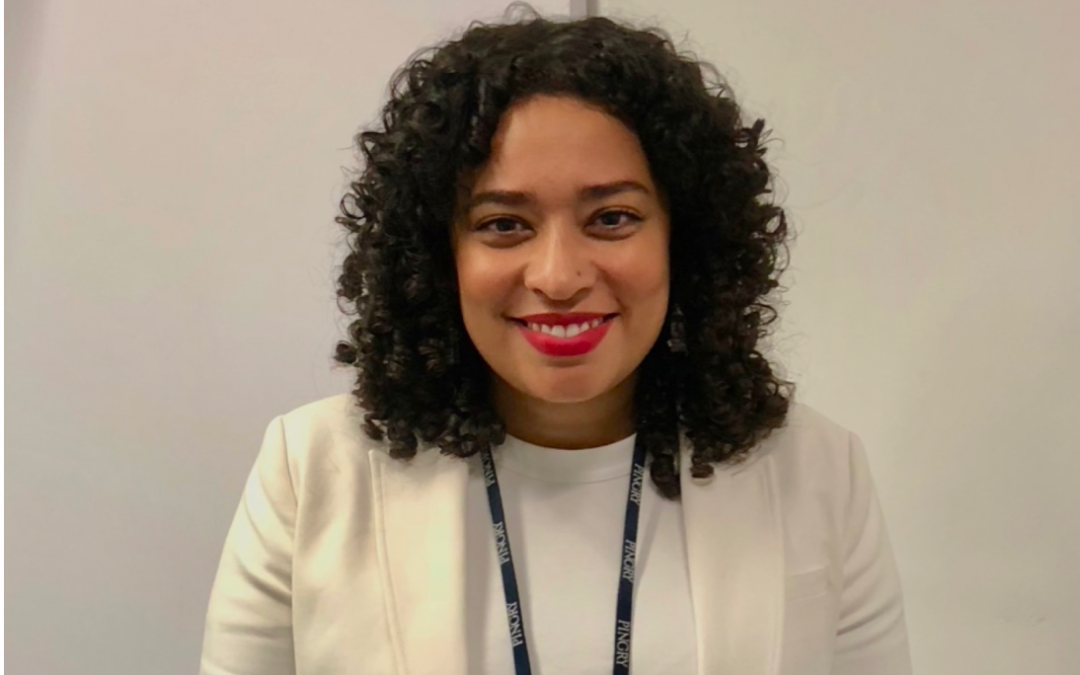
Nov 13, 2018 | Faculty + Staff
By Aneesh Karuppur ’21
This fall, Sra. Alexa López joins Pingry as a Spanish teacher and the Assistant to the Chair of the Department of Diversity and Inclusion. As a member of the World Languages Department, she teaches two sections of Spanish 2 in the Upper School. In her role within the Department of Diversity and Inclusion, she teaches one section of the sixth grade Cultural Competency class. In addition, as the Assistant Chair to this department, Sra. López works with affinity groups to provide the “resources [students] need to have great conversations” as well as with the Multicultural Teams to make sure that they “have the tools they need to work with all children.”
Sra. López holds a B.S. in Business and Marketing from New Jersey’s Kean University and a Master of Arts in Bilingual/Bicultural Education from the Teacher’s College at Columbia University in New York.
When a friend asked her to teach a Spanish course, Sra. López obliged and, realizing her love for teaching, left her work in business. For the next seven years, Sra. López taught at the Berkeley Carroll School in Brooklyn, New York and at the Millbrook School in Millbrook, New York.
A native Puerto Rican, Sra. López is a native speaker of Spanish and understands that many nuances of the language can sometimes be overlooked in school curriculum. When asked about how that immersive experience of growing up in a Spanish-speaking territory shaped her teaching, Sra.López said that she grew up “immersed in English first and then immersed in only Spanish and back and forth, and so I believe that you have to be in the language as much as possible to be able to absorb it and use it. I try to put myself in a place of just absorbing language and try to give that to my students.”
When asked about the importance of diversity and inclusion in the Pingry community, Sra. López said, “I think it’s one of the most important things… it’s one of our four pillars of the school. And rightfully so, because there are people here with all kinds of backgrounds, and we welcome more.” She understands that everyone wants to “feel needed and known for who they are.” One of her main goals for working in the Department of Diversity and Inclusion is to “offer more exposure to affinity groups… I want students to know how helpful [affinity groups] are. I really want to get to know the community, first of all, and then adapt from there.”
Sra. López’s outside interests include reading books that discuss topics that combine her work and her personal lives, such as the subject of identity development. Just like the rest of us, she also enjoys vacationing. Sra. López also loves to spend time with her family and friends.
So far, Sra. López has truly been enjoying Pingry, explaining that “this campus offers so many resources that I haven’t had in other campuses.” She appreciates that everybody’s health and wellness “are really promoted here… and everybody’s so kind.” Of course, another important part of the Pingry experience is the food. When asked about the lunch, Sra. López said, “The lunch is going to get me in trouble because I’m having way too much of it.”
Nov 13, 2018 | Columns, Technology
By Aneesh Karuppur ’21
Back to school means new teachers, new courses, and, of course, new technology. This past summer at Pingry, members of STC interned with the Technology Department. Under the guidance of Mr. Frantz, Mr. Azar, and Mr. Burkhart, two teams completed various projects to prepare the school for a new year.
The hardware-oriented tech team installed projectors and Roku streaming devices, prepared old equipment to be sold, repaired faculty computers, and completed a variety of other projects. The software-oriented code team successfully completed a more efficient version of the Pingry event approval system, taught the Python programming language to faculty, and designed a new curriculum for Pingry’s existing computer science courses.
Aditya Gollapudi (VI), a member of the Code Team, said this about the experience: “[We] felt very lucky to have so much trust placed in us by the [Computer Science] department. Not only were we given control over design decisions in a product that will hopefully be used by much of the administration, but we were also allowed to help shape the high school, middle school, and elementary school CS curricula. To have that level of trust in a high schooler is unique to places like Pingry.”
Noah Bergam (IV) also commented about his time as a member of the Tech Team: “Pingry’s tech internship was a lot more than just installing projectors and sorting inventory. As we worked and went on breaks, we were able to have interesting conversations about the tech world at large, about topics ranging from cryptocurrency to cars to Facebook’s data scandal. In these little conversations, I was able to learn a lot from my coworkers.”
Some exciting technology news has transpired in the world at large in the last few months. In September, Apple held its much anticipated iPhone and Apple Watch launch event. The new phones are the XR, XS, and XS Max. The iPhone XR, Apple claims, boasts the most advanced LCD in the industry. The iPhone XS and XS Max are Apple’s flagship phones this year, featuring sharper OLED screens. All of the phones use the Apple-designed A12 Bionic chip, which includes Apple’s Neural Engine for augmented reality and advanced camera capabilities. The XS features an improved rear dual-camera setup that expands on last year’s iPhone X, while the XR features a single rear camera.
The Apple Watch Series 4 features a 30% larger screen and a thinner design. As with last year’s model, it is available with cellular connectivity. It includes more activities to track workouts and can be equipped with an ECG (electrocardiogram) to determine your heart’s electrical activity. This makes it easier to monitor your heart and enables it to help alert you of any problems.
In August, Samsung released its flagship Galaxy Note 9 smartphone. It features an enormous amount of onboard storage, so you won’t have to worry about running out of space on your phone again. The phone also comes with its trademark S Pen, a stylus that can be used to write on the phone.
Finally, in July, Apple suddenly released its new line of MacBook Pros . . . and then immediately apologized once reports of overheating started rolling in. They soon after released a bug fix; the overheating is no longer much of an issue. They feature Apple’s in-house T2 chip, which bundles stronger security features with other (previously separate) controllers. I offer a word of warning about these new MacBooks: Apple has removed the data recovery port that was present in earlier MacBook Pros. If the logic board fails and you do not have a backup, your data may be lost.
Nov 13, 2018 | Editorial, Opinion
By Nava Levene-Harvey ’19
Senior year has begun for Pingry’s class of 2019. Somewhere on the horizon, college acceptances and rejections, mental breakdowns, and unimaginable stresses all await my classmates and me. Now, the many awards ceremonies I used to think of as only annoyances are essential. These awards have the possibility of being the “cherries on top” in college applications, and one in particular takes the cake over all of the others: Cum Laude.
Before the Fall Awards Assembly on Friday, September 21, I heard several people talking about the school deciding not to induct half of their Cum Laude selection in the fall, as done in previous years. At first, I participated in these conversations thinking it was merely speculation, but the assembly fully confirmed that fact for the whole school.
I believe that Pingry’s choice to postpone this induction to the spring has hurt student morale more than it has helped. The awards ceremonies reward people for their achievements from the year before, and Cum Laude is no different. Yes, there is the obvious fact that seniors inducted in the spring cannot put it on their college applications; however, this is not unique to the Cum Laude induction. All of the awards given during the spring award ceremony cannot be included on a senior’s college application. By changing the policy for Cum Laude and doing the full induction in the spring, Pingry increases stress for students by placing more emphasis on their performance than before.
For those who might oppose this argument, I offer this: if people are driven to be the best and strive to prove that to themselves and others, Cum Laude would be their opportunity. This type of incentive, to encourage students to push themselves until they reach their goal in spite of all obstacles, might otherwise be admirable but in fact it runs the risk of making students’ mental health collateral damage during an already high-stress time. The school previously helped prevent this by inducting only half of the students in the fall, but now all students will undergo an elongated period of stress. .
The Cum Laude change does offer the possibility of opening up a dialogue about a larger issue. The choice, one that directly affects students, was made without the current students’ input. Ms. Chatterji has made it obvious that the Board of Trustees is beginning to try to make student voices more involved in their decisions, exemplified by the survey she mentioned during morning meeting regarding the new Head of school. Yet, the fact that the induction policy was changed without even making an announcement to the student body is problematic, being that Cum Laude is so important to the student body.
While this was a lapse in the school’s judgment, they have the chance to rectify this situation by developing a way to involve students in events that directly affect them. I mentioned the survey from the Board of Trustees earlier because actions like that are a start. I want to make it clear that I do not think that every decision the administration makes needs student input. However, there are going to be topics that directly affect students, topics that students are more inclined to give their opinions about, and those must be taken into account. As students at this school, we deserve a say in issues that directly affect our experiences.
With improved methods of making decisions directly involving students, the probabilities of something like this happening again will decrease. The Cum Laude choice should reveal how choices made on their own can negatively impact the community. Going forward, the choice should show the Board of Trustees that it needs to convey a clearer message to students that their voices matter. Surveys, chances to talk at length in person, and even emails could be a start.

Nov 13, 2018 | School News
By Brandon Lane ’20
Mr. John Crowley-Delman is a World 9 History teacher at Pingry. He is also a wilderness “addict” who enjoys hiking and backpacking. Most recently he was appointed to a new role: Pingry’s Director of Experiential Education. While experiential education does not have a hard-and-fast definition, it is essentially, as Mr. Crowley-Delman explains it, “learning by doing.”
Experiential education has always been a part of Mr. Crowley-Delman’s life, beginning at a young age by spending summers at Camp Treetops, an outdoor learning institution for boys and girls near Lake Placid. His experiences continued over the years, and in 2017, he led two travel opportunities for Pingry students: Winter in the North Woods in the Adirondacks and City of Rock in Utah. All of these activities helped shape his passion and ultimately his teaching methods.
“Why do we study history?” This was the first question he asked in World 9 History class. Students took their time developing complex answers with the hope of impressing their teacher. Then he shocked the room by saying, “Studying history doesn’t matter. It’s experiencing it that’s important.” Mr. Crowley-Delman was laying the groundwork for his students to learn hands-on and then reflect independently on what was learned. These are the principles of experiential education.
The main goals Mr. Crowley-Delman has for this year in his new role are to “shine a light on how experiential learning is already happening at Pingry, expand opportunities, and improve the program as a whole.” He believes students need to experience a “wow moment” or have a realization about what they are learning. This occurs through reflection.
Global Programs is an example of how Pingry is providing experiential opportunities for its students. For example, the City of Rock Program was a backpacking adventure through Utah’s canyon wilderness that brought students into contact with some of the best preserved Ancestral Puebloan rock art and cliff-dwellings in existence. To see and feel pieces of ancient history, photograph them, and reflect on what was learned helped bring the material to life–something that doesn’t easily happen in a classroom listening to a lecture or watching a PowerPoint.
The principles of experiential education are founded upon the process of conceptualizing, experimentation, experience, and reflection. Mr. Crowley-Delman will work to merge traditional teaching styles with these principles. With a new hybrid in place, he hopes the opportunities Pingry provides will encourage students to pursue experiential education not only while they are on its campus but for years to come.

Nov 13, 2018 | Columns, Movies, Summer Experiences
By Martha Lewand ’20
Ever since the movie Mamma Mia was released, fans (including myself) have been anxiously waiting for a sequel. Ten highly-anticipated years later, Mamma Mia 2: Here We Go Again! is finally here! Directed by Ol Parker, the film had my friends and I singing joyously and dancing out of our seats in the movie theater.
The movie includes two concurring storylines, one of young Donna Sheridan (played by Lily James) and the other of her daughter Sophie Sheridan (Amanda Seyfreid) in current times. Circa late 1970s, young Donna has just graduated from university and is eager for adventure. The story details how she meets young Bill (Josh Dylan), Harry (Hugh Skinner), and Sam (Jeremy Irvine) trekking through Europe and ultimately makes her way to the Greek island of Kalokairi. In present day, Sophie grapples with her mother’s (Meryl Streep) recent death, the responsibility of reopening the hotel her mother started, relationship troubles with her husband Sky (Dominic Cooper), and an impending storm potentially preventing her two fathers, Harry (Colin Firth) and Bill (Stellan Skarsgard), from attending the reopening.
No doubt, the best part of the film is the musical numbers. Covers of songs from the first movie are beautifully sung with their own twists while still respecting the original versions. Classics such as “Dancing Queen,” “Mamma Mia,” and, most notably, “Waterloo” all come to life again under the new direction. In the first version, the ABBA tune “Waterloo” was played during the closing credits as the cast danced and sang along. In the sequel, the song is revised in a scene that takes place in a local Parisian cafe with young Donna and Harry. The song is performed in an elaborate fashion, with berets, baguettes, cartwheeling waiters, and French Revolution-esque costumes stealing the show. The corniness of the new “Waterloo” adds an amusing, engaging charm the older version did not possess.
While acknowledging the musical foundation of the first film, Mamma Mia 2 is able to create new songs that fit seamlessly in the plot and are remarkably catchy. When young Donna graduates from college, she performs “When I Kissed the Teacher,” a song that represents the provocative, audacious, and spunky side of Donna’s character to which we are just being introduced. Lily James superbly embodies young Donna’s free spirit throughout her quality vocal performances.
To offer a point of criticism, although I respect Ol Parker’s decision to take on the massive plot, the constant back and forth between time periods is confusing to follow at times. With that being said, however, what I admire most about Mamma Mia 2 is its goal to not attempt to recreate the plot and success of the first movie. For example, most people disagree with the inclusion of Meryl Streep-as-Donna’s death and argue that the exclusion of the actress hurts the movie. But after viewing the film, I conclude that it was a shrewd decision. Even though it was risky to remove an icon like Meryl Streep, the entire movie pays homage to her; the retelling and glorification of Donna’s life story is the most prominent and sentimental element of the whole movie.
The amazing collaboration of the new and old casts, catchy music, and a complex plot with twists and turns throughout make Mamma Mia 2 a hit. If you are ever in the mood to dance and sing along to some classic, uplifting tunes, I strongly recommend seeing Mamma Mia 2 as soon as possible.
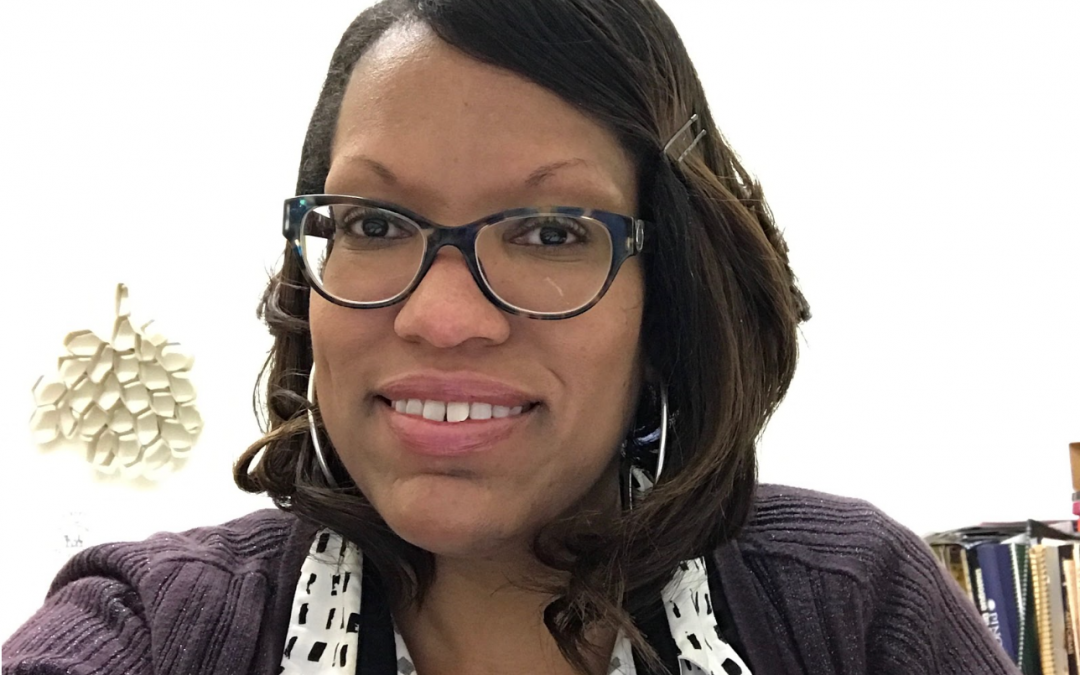
Nov 13, 2018 | Faculty + Staff
By Sophia Lewis ’22
This fall, the Pingry arts department welcomes Ms. Melody Boone to Pingry as a new faculty member. She will be teaching Art Fundamentals and Architecture to Upper School students, as well as an Art and Nature class to Middle School students. In addition, she will run an open studio art class for the middle school and the middle school yearbook.
Ms. Boone went to Virginia Commonwealth University where she earned her B.F.A in Painting and Printmaking. After this, she attended Pratt Institute where she earned her M.F.A in Painting. Before coming to Pingry, Ms. Boone was a teacher of Photography and Art Fundamentals at Nansemond-Suffolk Academy in Virginia for seven years, and she taught an eighth grade art class at the same school for one year.
When asked what inspired her to become a teacher, Ms. Boone said: “I have been an artist my whole life, and I want to be able to share what I love with others. It’s a good thing to be able to share something that you love to do with other people.” When she has free time, she likes to make her own art. “I haven’t had much time to make art recently since I have been so busy getting acclimated to the Pingry environment, figuring out where everything is and getting used to classes. I hope that I can find some time to start making more art again.” She especially likes using many different medias in her work.
Looking forward, Ms. Boone’s goal is to make it through the year and find her groove at Pingry, as the school is still relatively new to her. “I’m still getting used to Pingry – I want the year to run smoothly for me.” On top of that, at some point during the school year, she wants to be able to find a time to do some three-dimensional printing, either on her own or with one of her classes. She would also like to spend some time playing with materials in the art rooms that she teaches in. When asked about her experience at Pingry, Ms. Boone said that she “likes it here so far.” She also commented on the bustling, fast moving nature of the school: “Everyone here is so busy! It feels like Pingry is always buzzing– there is always something to do or somewhere to be.” Ms. Boone hopes to have a great first year!
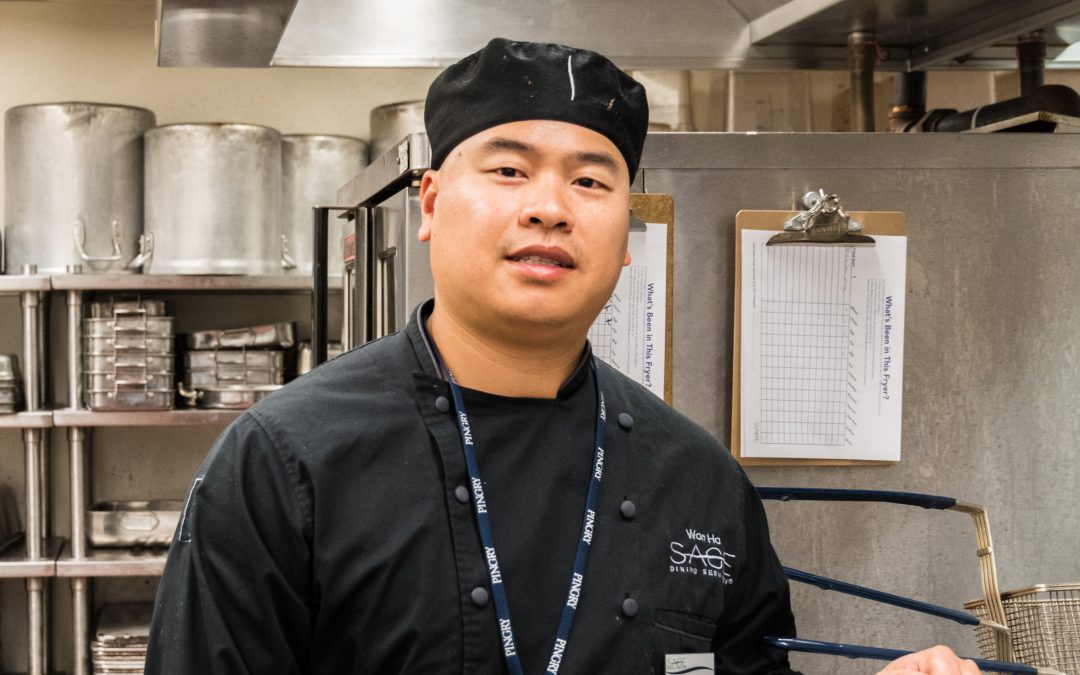
Nov 12, 2018 | School News
By Justin Li ’21
Among numerous rousing announcements during the first morning meeting of the year, students seemed to cheer the loudest at the introduction of the new head chef, Won Ho. The collective reaction indicated how members of the community were craving a change in the cafeteria, and in these first few weeks of school, he and his team have proven that the excitement surrounding his arrival had been well-warranted.
One of the most noticeable improvements that students and faculty are enjoying is the upgraded salad, panini, and pasta bars in the center of the dining hall. With shelves for plates, bowls, and cups built into their sides, the stations radiate modernity and are one of many changes that have made Pingry’s dining experience more streamlined. The addition of a second pasta bar with pre-tossed pasta helped solve the endless lines of previous years, although the new sauces and near-daily breadsticks seem to keep these lines long. Pre-assembled paninis at the panini bar have also addressed the same problem. Along with these layout changes comes the more frequently-appearing build-your-own station that has established itself to the right of the old panini presses, where students can customize foods like stir-fry noodles and baked potatoes with a plethora of sauces, seasoning, and toppings.
Despite these exciting upgrades, the biggest and most important improvement has been the food itself. When asked about his goals for the year, Chef Won says that he hopes to “give the food more variety, more selection, and to improve the speed and quality.” It is safe to say that he and the Sage Dining staff have already succeeded in resolving difficulties that have plagued the school for years. In regards to variety and selection, the Upper School has enjoyed new dishes such as chicken and waffles, gnocchi with butternut squash, and customizable Korean rice bowls. Brownies, chocolate-chip cookie bars, and new frozen treats have been integrated into the dessert rotation as well. As the year goes on, Pingry students and faculty can be sure that SAGE Dining will continue to surprise them with new choices. Chef Won says his favorite part about cooking is “the food and the culture. It’s always the culture. Different styles of cooking, different flavored foods, different spices,” and the eclectic range of food he has prepared this year reflects these cultural influences.
Overall, the products that leave the kitchen taste fresher, better seasoned, and more polished than foods from previous years, which can be largely attributed to Chef Won’s leadership. In his own words, “I’m just making sure that everyone’s tasting their food, working with individuals, training them, creating their resume, and making them stronger. Some members of [the staff] have been here for a long time, and I’m just giving them the tools they need to improve and making little adjustments.” This year, Chef Won has made sure that students are well-fed for their classes, sports, and activities everyday, and with his team’s work, the dining hall seems busier than it has ever been.
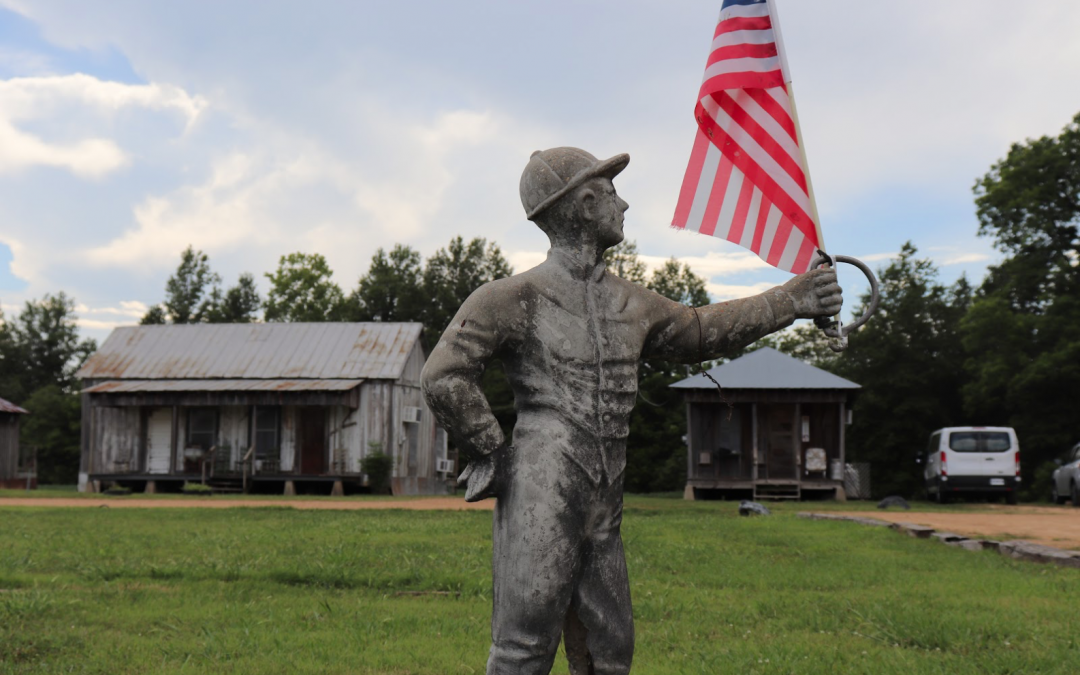
Nov 12, 2018 | Featured, Summer Experiences
By Allie Matthias ’19
On the Fourth of July, I paddled up the Mississippi River as part of a New York Times Student Journey. The late afternoon sun-baked the canoe as sweat dripped down my back. My heart pounded, my eyes stung from melted sunscreen, and my arms began to feel like jelly as we pushed against the current. Isaac, the curly-haired leader of our canoe, sat in front of me while the rest of our group, a diverse mix of boys and girls from all across the country, sat behind me with their paddles ready. Isaac began paddling and the rest of us followed, trying to coordinate with his movements. Everyone grew tired as we reached the Arkansas border and some took a rest. Thinking, “this is good practice for the upcoming tennis season,” I kept pushing forward, but my arms grew heavier and heavier as more and more of my friends stopped paddling. I trusted myself to keep moving, but we needed everyone to propel us forward. On this journey, we examined social justice, specifically racial injustices, in the American South. We explored heavy issues that required us to be honest and vulnerable to broaden our understandings of each other. Canoeing was like having one of our conversations. We all had to work together to push forward into new ideas or new states of mind. Whitney, our group leader, suggested that we sing together to make the ride a little easier to endure. So, we joined together, paddling and singing Sweet Caroline in unison as we drifted towards a little island in the middle of the Mississippi. We trusted each other to give all our effort to paddling, and, in those moments, I was able to let myself go.
For me, this summer was the summer of exploring the United States and my role as a U.S. citizen. I witnessed both the beautiful and the ugly of this country by beginning and ending my summer in national parks and traveling through the South in between.
I began my summer with a family road trip through Appalachia, where I drove through the Blue Ridge Mountains, hiked Shenandoah National Park and the Smoky Mountains, and stayed at the majestic and eery Greenbrier resort in West Virginia. This was a part of the country that I’ve never been to before; the farthest south I had previously traveled in the U.S. was Florida (which barely counts as Southern). In West Virginia, I saw the embrace of Southern white tradition in the over-patterned and well-groomed Greenbrier, a monolith of golf courses and sweet tea. In Eastern Tennessee, I biked through a town ravaged with confederate flags and trucks. Yet, on the other side of all of this was the physical beauty of the Smoky Mountains that pulsed with both an intricate ecosystem of animals and enthusiastic environmentalists.
I ventured deeper into the South with the New York Times to dive into the racial injustices and the culture that was derived from it. From New Orleans to Clarksdale, Mississippi, I saw how there is great diversity and art pulsating throughout, from the blues music to theater groups. At the same time, in every city we ventured through, history was knocking. We visited the lynching memorial in Montgomery, walked across the Edmund Pettus Bridge in Selma, and toured a plantation that memorialized slave lives in Louisiana. There is so much to learn about the South, not just from physical buildings, but from people too, as they are the ones who lived through these stories.
I ended my survey of the U.S. in the Pacific Northwest, taking a ferry through the San Juan Islands and hiking in North Cascades and Olympic National Park. With my senior year closing in, I felt thankful for this breath of fresh air in an environment so distinct from New Jersey.
More than anything, my summer revealed the duality of this country, from the arts and culture to the racism and discrimination. In each state I traveled through, I considered how there has been so much progress, but there is still so much more to do. Most of all, I learned about myself as an American, what it means, and my identity in this country.
Nov 11, 2018 | Faculty + Staff
By Brooke Pan ’21
This fall, the Pingry Upper and Middle Schools welcome Dr. Adam Rosen to the campus’s Counseling Department. Dr. Rosen will work both in the office as a counselor and outside his office on projects to help aid the Pingry community.
Dr. Rosen attended the University of Michigan, where he received his B.A. in Communications. After graduating, Dr. Rosen attended the Illinois School of Professional Psychology, receiving a Doctorate in Clinical Psychology.
Prior to arriving at Pingry, Dr. Rosen spent roughly 20 years working in counseling centers of multiple universities. He has a wide range of perspectives, having worked in various positions, including as a coordinator and a director of counseling centers. When he decided to search for a new environment, he found Pingry. Dr. Rosen welcomes the challenges of a different environment. Now, he hopes to use his previous experiences with college students to work with Pingry’s students. He noted that though there is a large age gap, there are similarities in the challenges both age groups face and he strives to use his knowledge of college students to combat them.
When asked why he became involved with Pingry specifically, he touched on the idea of how “the newness of working with younger students and also in a different setting is definitely appealing.” Within the first few weeks of school, Dr. Rosen already appreciated the new setting. He has enjoyed getting to know all of the students he has met. He then added that “the staff has been very supportive” with his transition into the new environment. Dr. Rosen stated that the contrast between the atmospheres of Pingry and the many college campuses he has worked at excites him, and he appreciates the fresh change.
This year, Dr. Rosen says that the most important goal for him is to “make counseling and health and wellness something that’s accessible and comfortable for all students.” He understands that students’ comfort levels vary, but he is also aware that high school is a stressful environment and everyone has moments when he or she struggles or needs support. He notes that it may be difficult for students to open up to someone new, and he looks to combat that. During his time here, Dr. Rosen hopes to make his office available to any student who may need it and to break the stigma associated with counseling.
He noted that, “People may not only feel uncomfortable but also may have certain perceptions about counseling that aren’t exactly clarified, so I want to help to demystify counseling for most people and make sure that if they’re struggling, they never have to do it silently.”
Dr. Rosen welcomes the new challenges and is grateful for the opportunities he will have during his first year at Pingry.
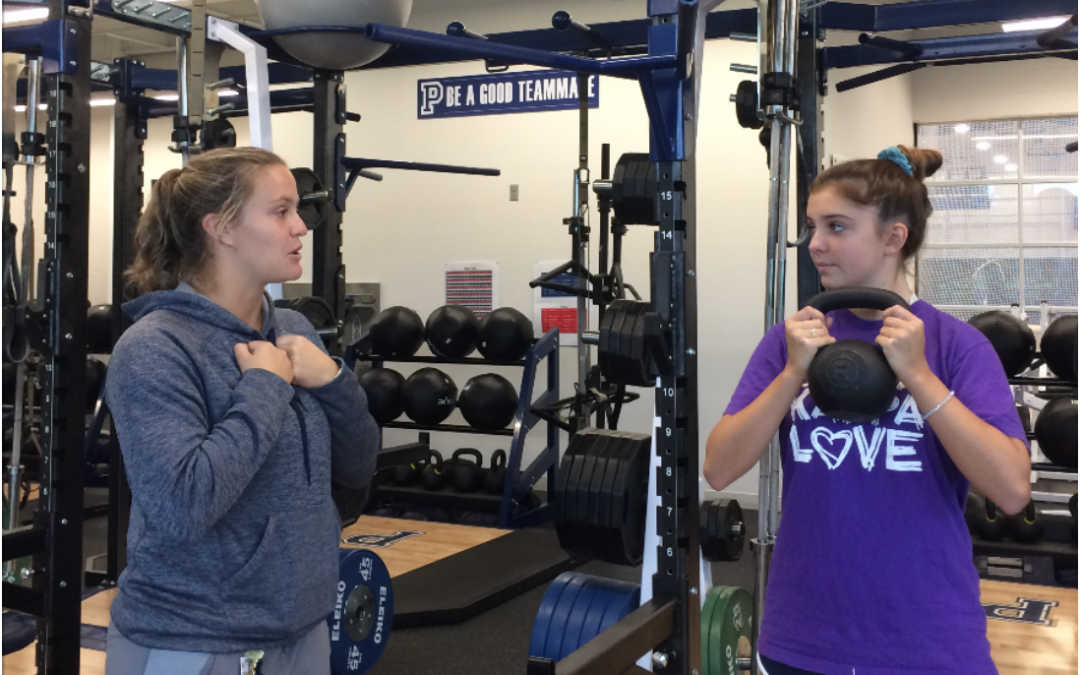
Nov 11, 2018 | Faculty + Staff
By Ashleigh Provoost ’22
This year, Coach Julia Braun joins the Pingry faculty as a fitness teacher and resident coach. She will be teaching Intro to Fitness and Fitness Education, while also coaching soccer, basketball, and lacrosse. She will be working with those sports for the girls’ varsity, junior varsity, and middle school teams.
Coach Braun completed her undergraduate studies at Bucknell University before receiving her M.S. in Exercise Physiology. Before working at Pingry, she worked at T3 Lacrosse in Morristown, New Jersey as a girls’ lacrosse coach. She currently plays for Baltimore Ride during the summer, a professional lacrosse team in association with the United Women’s Lacrosse League.
Coach Braun’s real passion lies in lacrosse. She was a two-time lacrosse captain at Bucknell, a Division I school. Though she continues to play, she now finds fulfillment in coaching her favorite sport.
“I fell in love with coaching when I was sixteen,” she recalled. She described the moment when she realized how much of an “impact she was able to have on the people [she] coached.” She also enjoys teaching; she loves learning and sharing her knowledge about exercise and the science behind it.
When asked why she chose to work at Pingry, Coach Braun described her first impression of the school. “Before I started working here, I volunteered at the weight room; I really enjoyed the environment here,” she said. “Everyone was very nice to me, and the students were awesome.”
Coach Braun truly believes Pingry is a special place. “Everyone at Pingry was so warm and welcoming,” she said. “I had never worked at a place where the students were so kind to each other and to the faculty. I never had a bad interaction with anyone here; I only had genuine and honest conversations.”
She is looking forward to the upcoming year and meeting all of the students in the community. Welcome, Coach Braun!
Nov 11, 2018 | Featured, Summer Experiences
By Caroline Santoro ’19
The first time I met my boss, he was accompanied by a swarm of Secret Service agents, and I was wearing a bright red bathing suit. Given my reputation as the “ethics girl,” people react pretty strongly when they hear that for the past two summers, I have worked as a lifeguard for President Trump at the Trump National Golf Club in Bedminster. Some people are fascinated by my brushes with celebrities, eager to know what Melania orders for lunch or whether I ever had to rescue Barron from the pool. Others are critical or supportive of my job based on their political views. With these reactions, whether shaming or praising me, I feel guilty because I am not trying to make a political statement through my employment. I feel obligated to make excuses, noting that it just happens to be the closest pool at which I could work or that I applied for the job in September before he was elected. From my many hours on the lifeguard stand, I have gotten a glimpse into the Trumps’ private lives and gained a much more complex understanding of them and myself.
On my first day of work, I was pushing an unwieldy bin of dirty towels when dozens of men in suits came rushing into the pool area, talking frantically into their earpieces. All of a sudden, in strolled the President in his golf whites, greeting me and asking how I was doing. I was freaking out. Here was the President of the United States, much taller and less orange than I anticipated. Seeing him there, removed from his place on the global stage, he seemed like nothing more than the owner of the club. Sure, there were security checkpoints and Secret Service agents everywhere, but greeting me, he was just a boss making sure that everything ran smoothly.
Ivanka Trump and Jared Kushner spend many days at their cottage on the property by the pool. If you didn’t recognize them, you wouldn’t think they are different from any other family. Ivanka is just a mom, chasing her kids around the pool in a bathing suit and coverup, and Jared is just a dad on a lounge chair, throwing his daughter rings to retrieve in the water. After a year full of news regarding Mr. Kushner’s role in the 2016 election, I have many misgivings about his political choices. However, I still appreciate that he greets me every morning, eagerly asks my opinion on the club sunscreen selection, and thanks all of the lifeguards at the end of each day.
The best part of my experience at Trump National Golf Club has undeniably been my interaction with the Secret Service. All I had known about these men and women was that in eleven seconds they could shoot down a plane in the no-fly zone around the golf course. Quite frankly, I thought of them as robots, trained to jump in front of bullets and defuse bombs. Every day I worked at Trump, I realized just how ignorant that perception was. I first talked to an agent while (again) taking the dirty towel bin to the laundry room. I was giving my best effort to lift the heavy bin over a door frame, with no luck. Seemingly out of nowhere, a muscular man in sunglasses appeared behind me and lifted the bin effortlessly, chuckling and commending my effort.
Since that day, Joel has become my favorite colleague. His face lights up when I walk into work, and he always has something encouraging to say, cheering me on for doing a great job because, as he puts it, “no one’s drowned yet.” He tells me about his family in Michigan, and I realize that not only are these people working one of the most difficult jobs in the world, but they are sacrificing so much to do it. I had complained about missing social events when I had to work late, but then I heard a phone call between an agent from San Francisco and his six-year-old son, who was sobbing because his dad missed his very first soccer game. Despite these tough circumstances, the agents are friendly, passionate, and funny, whether they are raving about the subs at Bedminster Pizza or fighting over college football rivalries. Their fun and mischievous nature make them my favorite part of work; I can’t forget how they pranked me by telling me that the bomb-sniffing dog found narcotics in my car.
Some people think that by working for Trump, I am supporting his policies and the way he treats people. After my summers as a lifeguard, I have learned that I can completely disagree with him but still appreciate the great aspects of my job – I’m getting paid to be in a beautiful place, keep people safe, and hang out with some pretty cool friends (who happen to be able to shoot down a plane in eleven seconds). I’ll still feel conflicted with every tweet and speech, but I know that instead of running away from my job, I can use it as an opportunity to learn to understand people with whom I don’t agree and see people not as caricatures but instead as the complex human beings they really are.
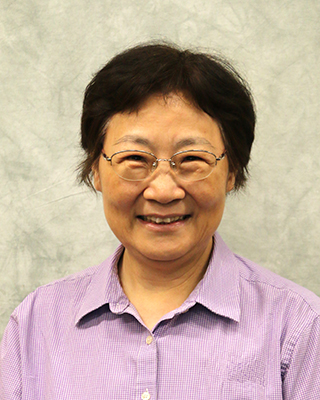
Nov 10, 2018 | Eva Schiller, Faculty + Staff
By Eva Schiller ’21
This year, Pingry welcomed Dr. Sabrina Chin-Shefi into the Middle and Upper School Language Departments, where she will be teaching Chinese 2, Chinese 5, and Chinese 7. Eager to get more involved in the Pingry community, she has already explored several committee meetings and will eventually decide which ones she is interested in. She is also very excited to be helping out as a producer for the upcoming school play.
Dr. Chin-Shefi attended Fu Jen Catholic University in Taiwan, where she earned a B.A. in English Literature and Language; she went on to receive an M.S. in Instructional Media at Indiana State University and a Ph.D. in Curriculum and Instruction from Kansas State University. Before coming to Pingry, she was a Chinese teacher and overseer of various Chinese programs at Father Ryan High School in Nashville, Tennessee. Even before she worked in America, Dr. Chin-Shefi worked with students at the Chinese University of Hong Kong as a lecturer and participant in professional committee boards.
Despite her years of experience, she notes that adapting to Pingry life is not the easiest. “I find the schedule is my biggest challenge,” said Dr. Chin-Shefi, especially when working with the conflicting schedules of the Middle and Upper School. In spite of these minor difficulties, Dr. Chin-Shefi maintains that she feels very welcomed into the Pingry community and that her experience has been “so far so good!” As she continues to work with her students, she plans to “do the best that [she] possibly can, and help those who are taking [her] classes to be able to do better.” Besides teaching, Dr. Chin-Shefi loves traveling, as well as visiting her friends and loved ones. “I also like to do some gardening work,” she added.
When asked about what inspired her to teach, Dr. Chin-Shefi answered right away: “because I love teaching,” she laughed. However, her choice of profession goes much deeper than that. “I enjoy communicating with people about concepts because it’s concepts that determine where we’re headed,” she remarked. “We have to constantly adapt by learning from others and reflecting on ourselves.” With her insightfulness and dedication, Dr. Chin-Shefi has already established herself as a valued member of the Pingry community.
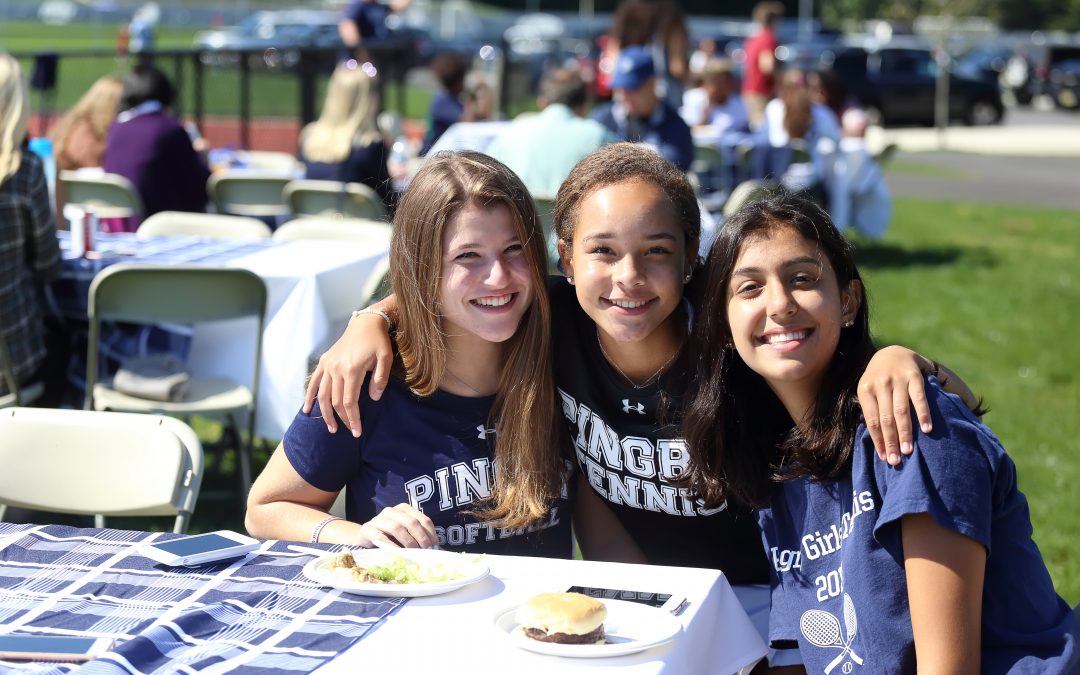
Nov 10, 2018 | Eva Schiller, School News
By Eva Schiller ’21
On a typical Saturday morning at Pingry, the halls are mostly vacant, the sports fields are soaking in the autumn sun, and the parking lots are barren, black expanses of tarmac dotted with the occasional car. However, bright and early on Saturday, September 29th, the school was flooded with hundreds of parents eager to meet with their child’s teachers, tour the school, and visit their child’s classes for Back to School Day.
After classes, parents, students, and alumni crowded under the tents and onto the sweltering bleachers. They enjoyed foods divided into categories labeled American, Texan, and Italian, along with various desserts and refreshing drinks. Many members of the community were there to cheer on the sports teams showcased on Pingry’s state-of-the-art athletic fields. The football team, boys’ and girls’ soccer, field hockey, and water polo teams all demonstrated their skill, teamwork, and dedication.
Pingry’s teams put forth their best effort and enjoyed a handful of successes. Boys’ soccer had an impressive victory against Staten Island Academy. The opposing team was unable to score a single goal, while Pingry scored six. Field hockey also shut out their opponent, scoring seven goals against Pennington, while girls’ soccer played a close game against The Peddie School, winning 2-1. Girls’ varsity tennis played North Hunterdon High School, where they won all five matches.
“Homecoming provided such a great atmosphere, and having family, friends, and alumni as spectators truly motivated us to win,” says first singles player Gia Graziano (IV) of the matches. “Celebrating afterward was one of the best moments of the season.”
Inside the school, the varsity and junior varsity water polo teams spent Homecoming in the pool, winning high-scoring matches against The Friends’ Central School. The football team fought hard throughout their entire game but unfortunately lost by just one point in a nail-biting final quarter, with the score ending at 42-43. However, the game was a great chance for the Pingry community to crowd into the bleachers and bond through their support of the team.
While the focus of the entertainment was Pingry Athletics, students and alumni embraced the spirit and energy of their peers, showing school pride by taking pictures with Big Blue Bear, grabbing Homecoming 2018 T-shirts, and having their faces painted. “I loved watching the school band together in school spirit,” says Hannah Guglin (VI). “The sports really brought out the best in the students.”
As the sunny afternoon turned into evening, students returned home to dress up for the Homecoming dance. The theme this year was “Superheroes and Supervillains.” They returned donning creative costumes, ranging from the Powerpuff Girls to characters from The Incredibles. “I thought the superhero theme was really creative!” commented Rhea Kapur (IV).
In the gymnasium, the students relaxed after the stressful first few weeks of school. Student government collected five dollars for admission and encouraged dance attendees to donate extra money to be put toward hurricane relief.
Throughout the week, the student body had been building up to Homecoming with Spirit Week. The themes were Pajama Day, Halloween Day, Pingry Day, Multiples Day, and Spirit Day. On Spirit Day, everyone dressed in their grade’s color and celebrated at a Pep Rally run by the Student Activity Committee. Homecoming and the week leading up to it displayed the infectious energy of the community. It was a great opportunity for students, parents, and alumni alike to show their Pingry pride.
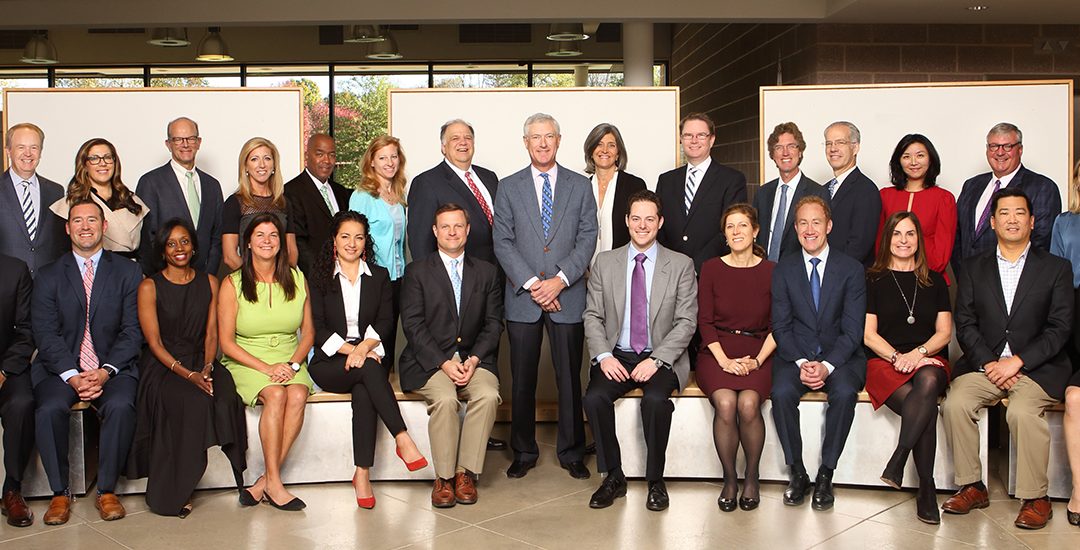
Nov 10, 2018 | Featured, School News
By Avidan Shah ’21
Pingry’s headmaster, Mr. Nathaniel Conard, announced his resignation this past June after a 13-year tenure. Headmaster Conard has made leaps and bounds towards improving our school and the quality of life for Pingry students, one of his greatest achievements being the extremely successful Blueprint for the Future campaign, which raised a record 75 million dollars.
With his departure, Pingry has launched a full-scale search for its next headmaster. The search is currently spearheaded by a committee comprised of Board of Trustees members Stuart Lederman, Katharine Wyman Procter, Arlyn Davich, Jeffrey Edwards, Denise Grant, Dev Ittycheria, and Steven Lipper. Mr. Lederman and Mrs. Procter are co-chairing this committee.
In terms of seeking out prospective candidates, it is a multi-step process. The executive search and leadership consulting firm Spencer Stuart has been hired by the committee to aid Pingry in its search. Upper School Director Ananya Chatterji explains why this firm was hired, saying that, “They identify great candidates. The search firm’s job is to identify who the best people would be [for a position].”
The firm will factor in many different variables when looking for a new headmaster, including the results from the survey that was sent out to all students. This survey asked students what qualities they expected from the next headmaster, as well as what skills they have developed the most while at Pingry and what resources they have utilized the most. The firm also took private meetings with members of the Honor Board and the senior Student Government to have conversations about what they would like to see change in the school as student leaders.
Naturally, the firm has many connections and contacts with potential candidates at different schools. They are in contact with people whom they believe would be viable options for the job. Spencer Stuart has also put together a position description where candidates can reach out to the firm and apply themselves, rather than being contacted by the firm. The firm is currently still compiling its list; once it is complete, they will present the Search Committee with their final portfolio of potential candidates whom the school will then interview.
When asked if any candidates at Pingry were being considered for the position, Dean Chatterji explains, “Spencer Stuart does what is called a ‘closed search’, meaning they do not publicize the names of the candidates that are in the pool.” With that said, candidates from within Pingry is a possibility.
After rounds of interviews, the entire Board of Trustees will make the final decision, advised by the Search Committee. This arduous process will be complete by the end of the school year. At that point, the final choice for the Head of School will be publicized to the student body, faculty, and staff.
Nov 10, 2018 | School News
By Madeline Skapper ’20
This fall, the Pingry Entrepreneurship Club is gearing up for an exciting second year. The club, led by Noopur Bhatt (V), Madeline Skapper (V), and Nicole Gilbert (V), focuses on providing students with a foundation on entrepreneurial topics to help students create their own business ideas to eventually form their own startup companies.
Last year, the club participated in the MIT LaunchX Mid-Atlantic Regional Event in New York City, an entrepreneurial event where students from across the East Coast gathered to pitch their business ideas to a panel of judges. Twenty-three teams comprised of groups of high school students pitched their ideas to the five judges who gave out four awards. Pingry brought two teams to present at the event. MyEcoWears, LLC. is an online sustainable clothing company founded by Bhatt, Skapper, Gilbert, and Emma Huang (IV). Petgradable is a company that advertises environmentally conscious pet products created by Rita Harrobin (V), Alesia Paliwoda (IV), and Kate Overdeck (IV). (Udochi Emeghara (VI) was a part of Petgradable as well, but was not able to attend.) The MyEcoWears, LLC. team won the “Most Customer Engagement” award at the event for the business plan pitch.
This year, the club is looking for more students interested in entrepreneurship or business to join and form their novel company ideas. The club plans to host an entrepreneurial panel as well as attend entrepreneurship events during the year where students will have the opportunity to present their own company ideas. These opportunities provide students with unique experiences in the world of business, which are not accessible to every high school student. The events are also an effective way to practice public speaking, as the pitches are presented to a large audience and judges.
The successful 2017-2018 school year was a great introduction for the Entrepreneurship Club, and they know this year will be even better. The club will adapt based on last year’s successes, as they plan to spend more time on the business creation process and learning about entrepreneurial concepts. The club is excited to see what creative company ideas students will come up with this year.










